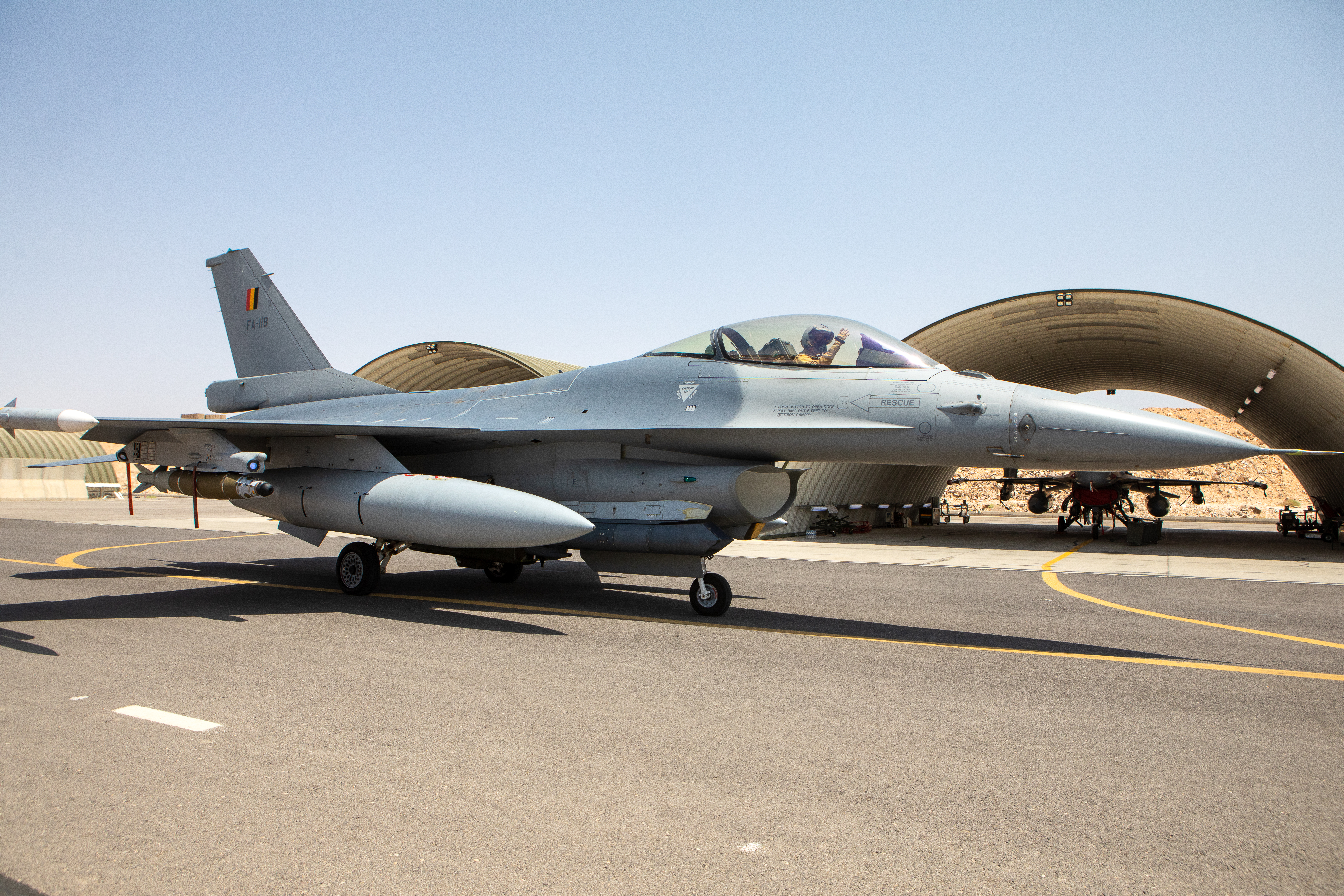
Mission Inherent Resolve
First Belgian participation in October 2014
Multinational coalition
More than 300 missions during Desert Falcon
Background
In 2013, ISIS (Islamic State in Iraq and al-Sham), also known as Daesh, acquired conventional weapons and established extensive armed formations. Taking advantage of a lawless environment, it gained control over large areas in Iraq and Syria, committing atrocities that shocked the world. The rapid rise of ISIS, its swift conquest of extensive areas, and the international terrorist attacks led in 2015 to UN Resolution 2249, in which the United Nations recognised ISIS as a “global and unprecedented” threat to international peace and security, and called upon its member states to take all necessary measures against the group.
-
Our mission
Although DAESH/ISIS no longer has the means to occupy large territories, small cells of supporters continue to actively carry out attacks in Iraq and Syria. Through Operation Inherent Resolve, the international coalition continues to support Iraqi and Syrian security services in neutralising terrorists. This way, we want to prevent this extremist movement from regaining support and resources. Belgium also continues to support the coalition. For example, in Kuwait, around ten Belgian military personnel are currently reinforcing the headquarters of coalition Operation Inherent Resolve in the fight against the terrorist group DAESH/ISIS.
-
What’s at stake
Through this international mission, we safeguard peace, security, and future prospects for our country. Below, we outline the potential impact of our mission in the Middle East.
Worst case, but not immediately expected
Daesh/ISIS has become a clandestine terrorist group but remains highly active. The group is likely to keep calling for, and even assisting with, attacks in Europe for a long time. It continues to pose a significant threat to Europe, and especially to Belgium.
Current impact
Operation Inherent Resolve has significantly reduced ISIS’s territorial control, weakened its military capabilities, and strengthened the capacity of government forces. Nevertheless, ISIS still poses an active threat today and presents the region with humanitarian challenges.